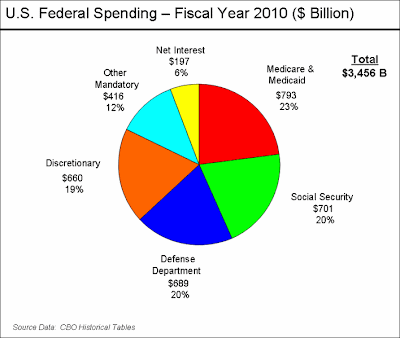
Friday, November 11, 2011
Wednesday, November 9, 2011
Issue 2 defeated.

Issue 2 fails. Collective bargaining for government workers in Ohio remains free of would-be limits imposed by Issue 5.
As a compulsive devil's advocate, I figured I'd spend a little time today following union money. Basically, I wanted to find out how much union administrators get paid. The quick answer is POTENTIALLY A SHITLOAD. If you make it to the top of a big union bureaucracy, you can command an impressive salary.
At least one local union with a stake in issue 2 is called Ohio Civil Service Employees Association (OCSEA). They work collaboratively with American Federation of State, County and Municipal Employees (AFSCME). AFSCME is a huge international union that at one time was affiliated with a labor group that included the Teamsters. The highest paid union administrator at AFSCME is William Lucy who in 2010 reported an income of $824,235 (coincidentally, that's pretty close to what Gordon Gee rakes in).
Feel free to figure out how much they're paying people at OCSEA on your own. :) This search tool sucks awfully and I just ran out of patience: http://kcerds.dol-esa.gov/query/getOrgQry.do
Fun, semi-related fact:
You know you're consuming conservative media whenever a union admin is referred to as a union boss. My guess is that this little bit of pejorative harkens back to the original Hoffa days.
Thursday, October 27, 2011
Dicey statistics making their way through Facebook

Anybody seen this one? It's wrong. Only 25% of the federal budget goes to war stuff. 43% goes to medicare/medicaid and social security. Bullshit = called. Almost half the pie is missing!

Here's the less glamorous, more likely to be based on real life version of the federal budget (original location). The author notes that bits of "Other" and "Discretionary" are related to defense, and estimates $800-$900 billion dollars of total defense spending.
$850 divided by $3456 = around 25%
The data underlying the pie graph comes from the Congressional Budget Office and hasn't been challenged on Wikipedia. Not exactly a cited work, but certainly enough to trump exhibit A. Oh, and the most awesome part of the Congressional Budget Office website is here. You're welcome.
Tuesday, October 25, 2011
Occupy the Oval
I went to the later portion of the "Occupy the Oval" protest that went on at Ohio State University yesterday. The featured speaker/musician at the time was a charismatic Andy Gallagher, who led the group in a Bob Dylan-esque infotainment session.
Key points were tuition costs, human apathy, and consumerism run afoul. Coincidentally, I happen to have seen Andy's full outfit Trains Across the Sea and highly recommend them (classic rock arrangement w/ fun songs and sweet keyboard).

My primary interest in attending Occupy the Oval was to check out all the various signage and pamphlet booths.
The biggest sign was a list containing the salaries and names of everyone working for OSU who makes over 300k (there are ~ 50 of them; all doctors and a handful of administrator types).
The most interesting character I ran into was an older fellow who wore his signage on his person. We'll call him the disgruntled inventor. Um, I dunno. He wants a ban on political TV ads. The rest was sort of hazy.
Lastly, the pamphlet booth with the highest quantity of face to face intellectual discourse going on: hands down, the International Socialist Organization - each participant taller and appearing more quizzical than the last. We had a little laugh because I was trying to collect two pamphlets that were actually the same pamphlet.

WARNING - Calling BS On Zeitgeist Starts Here
ALSO PRESENT at the occupation were a number of Zeitgeist signs along with unfortunate souls willing to be seen holding them up. I've watched Zeitgeist Addendum - it's the Zeitgeist movie that focuses on economic issues and monetary policy. Total snowjob. Folks, just because something has cool techno music playing in the background doesn't mean it's right.
Zeitgeist Addendum basically argues that fractional reserve bank lending (the way lending is done 'round these parts) is a gigantic scam that conjures money from thin air and ultimately leads to the destruction of the universe. The argument sounds reasonable because the movie conveniently omits the word liquidity.
The quickest antidote (effective within the first 20 minutes of the movie) is to learn about liquidity along with fractional reserve lending. Let's do so now. I don't intend for OSU Econ Guy to be a technical blog, but this is just one of those things that people have to learn or else they're vulnerable to conspiracy jackoffs like Peter Joseph.
Liquidity, for our purpose, means "ease of exchange". Cash is considered the most liquid of assets because it's the easiest thing to exchange for other things. If you want a new bicycle, you can go to a bike store and hand over some cash. Presto, it's a done deal. Something less liquid than cash, for example, would be shares of Microsoft stock. To exchange shares of Microsoft for a bike, you would have to sell the shares, convert them into cash, and afterwards go to the bike store with your cash. It's a bit of a pain, but not too bad.
Something with very little liquidity might be a house. To exchange a house for a bike, you would have to sell the house, find a new place to live, bring cash to the bike store, get the stupid bike, then figure out what to do with all that money you have left over. It would be idiotic.
Anyway, so that's liquidity.
Now, the mechanics of fractional reserve lending are accurately portrayed in Zeitgeist Addendum. Banks give out loans, borrowers deposit those loans in different banks, and then those different banks give out even more loans using that same money. This processes goes on and on. The end result does in fact double book a bunch of money, and does seemingly create money out of thin air. That's not necessarily a bad thing though.
 What Pete doesn't talk about, probably because his goal is to promote scary documentaries, is that all this double booking adds liquidity to the market. Because there's all this extra money around, people have more access to loans, and can start more businesses - in part because they don't have to exchange houses for bikes while trying to acquire capital. They just use money.
What Pete doesn't talk about, probably because his goal is to promote scary documentaries, is that all this double booking adds liquidity to the market. Because there's all this extra money around, people have more access to loans, and can start more businesses - in part because they don't have to exchange houses for bikes while trying to acquire capital. They just use money.
Fractional reserve lending does become a problem if everyone rushes in to withdraw their deposits all at once. The banks might not have enough real money in reserve to pay, at which point the banking system turns into road pizza.
A number of devices are in place that attempt to curb this risk (e.g. FDIC, minimum cash reserve requirements). More importantly: no attempts at risk reduction involve techno music and/or not acknowledging that there is such a thing as liquidity.
This is not to say that US monetary policy is a perfectly even handed force for freedom. Whatever is wrong with it though, it's nothing so flagrantly asinine as what's presented to you in the Zeitgeist Addendum movie.
I imagine everything else Zeitgeist is equally false.
Key points were tuition costs, human apathy, and consumerism run afoul. Coincidentally, I happen to have seen Andy's full outfit Trains Across the Sea and highly recommend them (classic rock arrangement w/ fun songs and sweet keyboard).

My primary interest in attending Occupy the Oval was to check out all the various signage and pamphlet booths.
The biggest sign was a list containing the salaries and names of everyone working for OSU who makes over 300k (there are ~ 50 of them; all doctors and a handful of administrator types).
The most interesting character I ran into was an older fellow who wore his signage on his person. We'll call him the disgruntled inventor. Um, I dunno. He wants a ban on political TV ads. The rest was sort of hazy.
Lastly, the pamphlet booth with the highest quantity of face to face intellectual discourse going on: hands down, the International Socialist Organization - each participant taller and appearing more quizzical than the last. We had a little laugh because I was trying to collect two pamphlets that were actually the same pamphlet.

WARNING - Calling BS On Zeitgeist Starts Here
ALSO PRESENT at the occupation were a number of Zeitgeist signs along with unfortunate souls willing to be seen holding them up. I've watched Zeitgeist Addendum - it's the Zeitgeist movie that focuses on economic issues and monetary policy. Total snowjob. Folks, just because something has cool techno music playing in the background doesn't mean it's right.
Zeitgeist Addendum basically argues that fractional reserve bank lending (the way lending is done 'round these parts) is a gigantic scam that conjures money from thin air and ultimately leads to the destruction of the universe. The argument sounds reasonable because the movie conveniently omits the word liquidity.
The quickest antidote (effective within the first 20 minutes of the movie) is to learn about liquidity along with fractional reserve lending. Let's do so now. I don't intend for OSU Econ Guy to be a technical blog, but this is just one of those things that people have to learn or else they're vulnerable to conspiracy jackoffs like Peter Joseph.
Liquidity, for our purpose, means "ease of exchange". Cash is considered the most liquid of assets because it's the easiest thing to exchange for other things. If you want a new bicycle, you can go to a bike store and hand over some cash. Presto, it's a done deal. Something less liquid than cash, for example, would be shares of Microsoft stock. To exchange shares of Microsoft for a bike, you would have to sell the shares, convert them into cash, and afterwards go to the bike store with your cash. It's a bit of a pain, but not too bad.
Something with very little liquidity might be a house. To exchange a house for a bike, you would have to sell the house, find a new place to live, bring cash to the bike store, get the stupid bike, then figure out what to do with all that money you have left over. It would be idiotic.
Anyway, so that's liquidity.
Now, the mechanics of fractional reserve lending are accurately portrayed in Zeitgeist Addendum. Banks give out loans, borrowers deposit those loans in different banks, and then those different banks give out even more loans using that same money. This processes goes on and on. The end result does in fact double book a bunch of money, and does seemingly create money out of thin air. That's not necessarily a bad thing though.
 What Pete doesn't talk about, probably because his goal is to promote scary documentaries, is that all this double booking adds liquidity to the market. Because there's all this extra money around, people have more access to loans, and can start more businesses - in part because they don't have to exchange houses for bikes while trying to acquire capital. They just use money.
What Pete doesn't talk about, probably because his goal is to promote scary documentaries, is that all this double booking adds liquidity to the market. Because there's all this extra money around, people have more access to loans, and can start more businesses - in part because they don't have to exchange houses for bikes while trying to acquire capital. They just use money.Fractional reserve lending does become a problem if everyone rushes in to withdraw their deposits all at once. The banks might not have enough real money in reserve to pay, at which point the banking system turns into road pizza.
A number of devices are in place that attempt to curb this risk (e.g. FDIC, minimum cash reserve requirements). More importantly: no attempts at risk reduction involve techno music and/or not acknowledging that there is such a thing as liquidity.
This is not to say that US monetary policy is a perfectly even handed force for freedom. Whatever is wrong with it though, it's nothing so flagrantly asinine as what's presented to you in the Zeitgeist Addendum movie.
I imagine everything else Zeitgeist is equally false.
Sunday, October 23, 2011
Why study economics?
For me, much of the appeal of economics comes from a natural desire to call bullshit on things. I just like it. It's simply through chance that before I was born, my family left an intellectual and unchallengeable nation of bullshit in exchange for an idiotic, grand spectacle of kindergarten retardism where everyone has a voice and only the most average survive: The United States of America. So, instead of living a life parsing complicated ideologies and dodging authorities, I get to comment safely (and endlessly) about a circus of dumb little competing propagandas clamoring about.

And, what's the #1 B.S. deliverable straight from the U.S. idiot-engine?: Being weird about sex. Number two is oversimplifying economics.

And, what's the #1 B.S. deliverable straight from the U.S. idiot-engine?: Being weird about sex. Number two is oversimplifying economics.
Saturday, October 22, 2011
The other day a guy wearing a kilt overheard that...
 The other day a guy wearing a kilt overheard that I'm an economics major. He asked me what school of thought I subscribed to. Turns out as an economics major, I'm supposed to be part of a school of thought or be an "ist" of something (e.g. Marxist, capitalist). This kilted fellow describes himself as a free market anarchist of the first wave Austrian school. He's also into the Renaissance Fair. That fair sounds pretty scary but what I did gain from the conversation is entry into the exciting world of economic and political ists, isms, and schools.
The other day a guy wearing a kilt overheard that I'm an economics major. He asked me what school of thought I subscribed to. Turns out as an economics major, I'm supposed to be part of a school of thought or be an "ist" of something (e.g. Marxist, capitalist). This kilted fellow describes himself as a free market anarchist of the first wave Austrian school. He's also into the Renaissance Fair. That fair sounds pretty scary but what I did gain from the conversation is entry into the exciting world of economic and political ists, isms, and schools.In reality my current position is "full of shit", and like many full of shit people I polish my dooties by using big words and vigorous declarations. After a bit of whimsical click-clack on Wikipedia I've decided to become an aleatory materialist of the neo-Ricardian school, with vigor. If you can help me figure out what all those words mean and are 100% sure they have nothing to do with Nazis, I'll let you be my personal vocabulary advisor and we can get on with the business of recruiting revolutionaries.
Friday, October 21, 2011
China shall be discussed
No self respecting Econ Guy is going to sit around all day and not talk about China. "Oh hey guys let's talk economics Euro this Greece that peep through this here monocle bla blah ---- wha?? What's a China?" This picture of huge objects built by Chinese people is my way of marking a spot on the blog that says authoritatively: "YES. WE TALK ABOUT CHINA HERE."
Subscribe to:
Posts (Atom)


